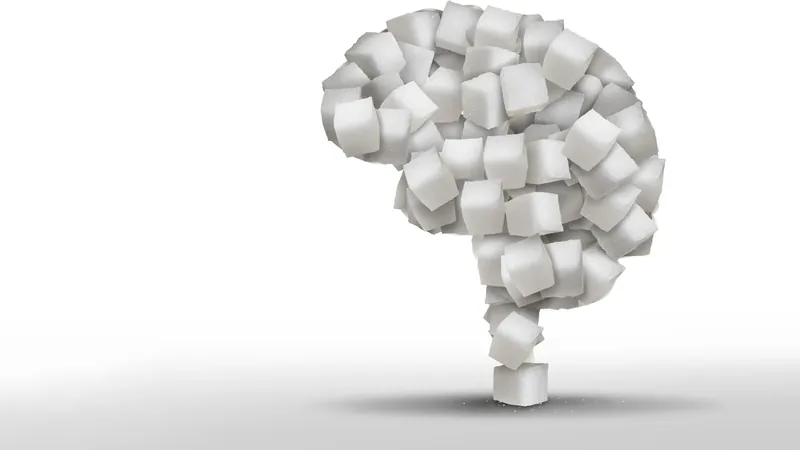
Breakthrough Discovery: A Sugar Switch That Shields Your Brain from Alzheimer's
2025-06-30
Author: Arjun
A Surprising Source of Protection for the Brain
In a groundbreaking study, scientists have unveiled an astonishing role of glycogen—a sugar often dismissed as mere energy storage. While primarily recognized for its functions in the liver and muscles, glycogen's significance in the brain, particularly in support cells known as astrocytes, has been underestimated until now.
The Game-Changing Findings
Led by postdoctoral researcher Sudipta Bar, PhD, the research team investigated the role of glycogen in neurodegenerative diseases like Alzheimer's. Their striking discovery reveals that neurons affected by tauopathy—an umbrella term for diseases linked to tau protein tangles—accumulate excess glycogen, which actually catalyzes disease progression. Bar explains that tau binds to glycogen, inhibiting its breakdown and creating a vicious cycle.
Glycogen's Underappreciated Function
When glycogen isn’t effectively degraded, neurons struggle to manage oxidative stress—a significant factor in aging and neurological decline. The researchers found that by reactivating an enzyme called glycogen phosphorylase (GlyP), they could significantly mitigate tau-related damage in model organisms such as fruit flies and human stem cell-derived neurons.
A Twisted Path to Protection
What’s even more intriguing is that instead of utilizing glycogen for energy, neurons exploited these sugar molecules for a different purpose: they redirected them into the pentose phosphate pathway (PPP). This pathway yields crucial substances like NADPH and Glutathione, which act as powerful defenders against oxidative stress. Bar noted that boosting GlyP activity helped neurons detoxify harmful reactive oxygen species and even extended the lifespan of fruit flies modeled after tauopathies.
Dietary Secrets Unveiled
The research also found that dietary restriction—a well-known method for prolonging lifespan—naturally increased GlyP activity, leading to improved outcomes in the flies used in the study. The team even demonstrated that pharmacological activation with a compound called 8-Br-cAMP could mimic these benefits, suggesting new avenues for treatment based on dietary mechanisms. Professor Pankaj Kapahi theorized that this insight could elucidate why GLP-1 medications, commonly prescribed for weight regulation, might also offer protections against dementia.
Implications for Future Treatments
Notably, similar protective effects linked to GlyP were observed in human neurons derived from individuals with frontotemporal dementia (FTD), bolstering the potential for translating these findings into therapeutic strategies. Kapahi emphasized that this research furthers our understanding of how metabolic dysfunction contributes to neurodegeneration, shining a light on new approaches to combat Alzheimer's.
A Collaborative Effort
The discovery is attributed not only to the innovative research but also to the collaborative spirit within the Buck Institute. The team leveraged expertise from various labs, creating a well-rounded approach to tackle this complex issue.
Hope for the Future
Ultimately, this study brings hope that by redefining our understanding of glycogen in the brain, we may develop novel strategies to combat age-related cognitive decline. As society grapples with an aging population, insights like these could unlock powerful tools for preventing conditions such as dementia.


 Brasil (PT)
Brasil (PT)
 Canada (EN)
Canada (EN)
 Chile (ES)
Chile (ES)
 Česko (CS)
Česko (CS)
 대한민국 (KO)
대한민국 (KO)
 España (ES)
España (ES)
 France (FR)
France (FR)
 Hong Kong (EN)
Hong Kong (EN)
 Italia (IT)
Italia (IT)
 日本 (JA)
日本 (JA)
 Magyarország (HU)
Magyarország (HU)
 Norge (NO)
Norge (NO)
 Polska (PL)
Polska (PL)
 Schweiz (DE)
Schweiz (DE)
 Singapore (EN)
Singapore (EN)
 Sverige (SV)
Sverige (SV)
 Suomi (FI)
Suomi (FI)
 Türkiye (TR)
Türkiye (TR)
 الإمارات العربية المتحدة (AR)
الإمارات العربية المتحدة (AR)